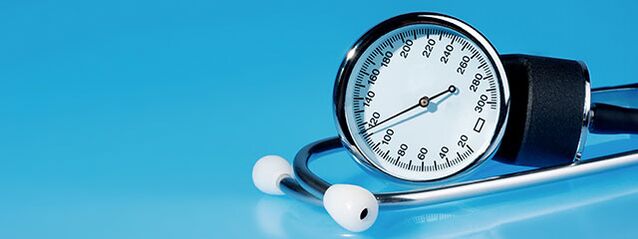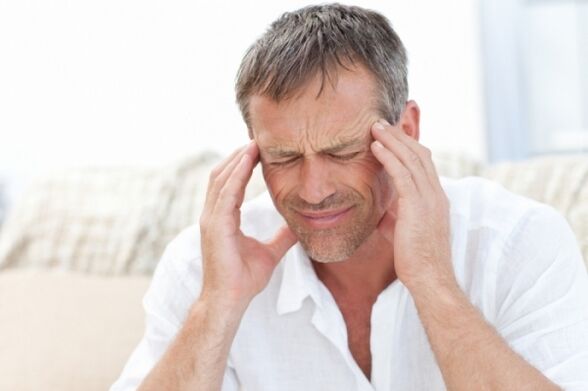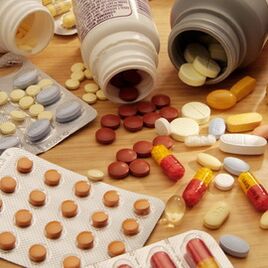Hypertension refers to a number of diseases associated with the cardiovascular system. What is hypertension and how is it expressed? In medicine, this disease is called arterial hypertension, it is expressed by regular high blood pressure in humans (from 190 to 40 ml of mercury and above). The disease is a common problem of mankind.

Causes of hypertension
Arterial hypertension is a multifactorial disease that develops for a long time and does not manifest itself in any way. The causes and favorable conditions under which hypertension manifests itself are absolutely versatile:
- accommodations;
- stressful situations;
- professional activity;
- electromagnetic fields and radiation;
- nutritional features;
- pathology of development;
- diabetes;
- elevated cholesterol.
Also, the cause of hypertension is a genetic predisposition. The causes of hypertension in women are due to difficult childbirth or postpartum stress.
Symptoms of pathology
Very often, the first signs of hypertension do not arouse suspicion, as these are the consequences of ordinary fatigue and overwork. But if you feel a regular manifestation of symptoms, and when measuring pressure it is constantly elevated, you should definitely consult a doctor. Signs of hypertension at the initial stage:
- headache (develops in the occipital region and encircles the head), which can occur at any time of the day, aggravated by bending or sudden movements;
- pain in the area of the heart, with experiences and stress;
- buzzing in the ears;
- dizziness, blurred vision.
- feeling of anxiety;
- feeling of pulsation in the head;
- overwork.

With the progression of the disease, the symptoms of hypertension are aggravated, the hypertensive sufferer exhibits excessive sweating, swelling on the face, swelling of the hands, and memory impairment.
A hypertensive crisis is an exacerbation that occurs in a patient with hypertension. An exacerbation is characterized by a sharp rise in blood pressure. This condition can be caused by stress, exercise, or stopping medication.
Hypertensive patients during exacerbation experience the following condition:
- feeling of nausea (vomiting may begin);
- sharp darkening in the eyes;
- dyspnea;
- feeling of severe pain in the head and chest;
- redness of the face.
Diagnostics
| Basic diagnostic methods | Description |
|---|---|
| Pressure measurement | A medical portable device is attached to the patient's belt, and a cuff is placed on the shoulder. After some time intervals, the cuff is inflated, and the portable device will fix the pressure. During the daytime, blood pressure is recorded every 10-15 minutes, and at night - every 30 minutes. |
| Blood and urine test | The analysis is able to determine the level of hemoglobin, hematocrit, potassium, calcium, creatine glucose, shows the level of cholesterol. |
| Instrumental diagnostics of the heart |
|
| Eye examination | An ophthalmologist performs an eye examination. At the initial stage of the disease, the retinal veins expand and the arteries narrow. |
| Ultrasound of the kidneys and adrenal glands | With an increase in pressure, nephrons, the filter for blood, die in the kidneys. This can result in kidney failure. Medical ultrasound of the kidneys reveals: tumors in the adrenal glands, possible pathologies of the kidney tissue. |
Treatment of pathology
During treatment, patients should lead a calm lifestyle, in which neither stress nor emotional overload is present. Patients need to spend more time outdoors, it is best to take long walks in the forest, in the park, near the reservoir. It is imperative to follow a diet, since proper nutrition is the key to successful treatment of arterial hypertension.
medical

Treatment of hypertension depends on the stage of the disease. The main goal of the treatment is to minimize the risk of developing cardiovascular complications and prevent the threat of death.
The goal of drug therapy is to lower blood pressure, namely, to eliminate the cause of this vascular condition. At the beginning of the treatment of hypertension, mono and combination therapy is appropriate. When it is ineffective, I use low doses of combinations of antihypertensive drugs.
Drug treatment for hypertension is prescribed by the attending physician after studying the results of the diagnosis. If hypertension occurs, then therapy is carried out with such medicines as:
- Alpha and beta blockers are prescribed for patients with cardiovascular problems. In order to prevent complications of the heart, these are the best means, but not the best.
- Vasodilators reduce pressure, but can be used for a long period, as the drug is addictive (use no more than 2 weeks).
- Diuretics and calcium antagonists result in a long-term effect. These medicines normalize blood pressure gradually.
- Administration of calcium blockers along with diuretics. These drugs block the absorption of calcium by the vessels, as a result, they expand and pressure decreases.
Folk remedies
- Beet. Beetroot juice should be consumed 3 times for 24 hours, 0. 5-2 cups (2-3 weeks).
- Black chokeberry. In order to be treated using this method, you need to drink juice 3 times a day (2 weeks). Then the reception is interrupted for a week, after which the treatment continues.
- Garlic. 3 heads of garlic and 3 lemons need to be chopped in a meat grinder. The gruel is poured 1. 25 liters. boiling water, infused for a day, mixed. Take 50 ml 30 minutes before meals and before going to bed (3 weeks).
- Cranberry and honey. You need to mix half a glass of cranberry juice and half a glass of honey. Reception is carried out 3 times a day, 1 teaspoon for 2 weeks.
- Medicinal herbs are used as non-drug treatment of hypertension: chamomile, St. John's wort, motherwort, calendula clover. Decoctions from these plants can be used to treat and prevent the causes of hypertension, as they have a calming and anti-stress effect.
Diet for hypertension

Treatment of hypertension includes diet as an important factor in recovery. Diet in hypertension plays an important role. Therefore, there are recommendations that relate to the diet. Limit salty, fried and fatty foods. From the diet you need to eliminate butter, beef, mayonnaise, sour cream. Instead of animal fats, you need to choose vegetable fats. Simpler food is recommended: cereals, vegetables and fruits, foods that contain potassium (cottage cheese, potatoes, citrus fruits, dried fruits, oatmeal). Dieting and choosing the right foods will help lower cholesterol, which in turn will lower blood pressure, as well as reduce the unhealthy effects of sodium.
The main rule if arterial hypertension appears and is found out is simple - you need to see a doctor, since a hypertensive person should be treated under his control.
What is dangerous?
Provokes a disorder of the central nervous system:
- headache;
- decrease in working capacity;
- stroke.
Causes disorder in the internal organs:
- Acute renal failure. There is an uneven distribution of blood throughout the body.
- Cardiac ischemia. With a significant load, the heart begins to increase like a muscle, and the vessels do not develop, the oxygen supply is disrupted, while the work force does not change, an overload occurs.
- Visual impairment (dilation of large vessels and narrowing of small ones).
- Violation of sexual function (in men, it occurs due to the intermittent supply of blood to the penis, which can cause blockage of the arteries that feed it).
Hypertension entails a number of additional deviations. Developing and progressive hypertension carries with it serious consequences that make the treatment of pathology more difficult. The risk of stroke and heart attack increases significantly with arterial hypertension. The more hypertension progresses, the more severe the deviation becomes.






















